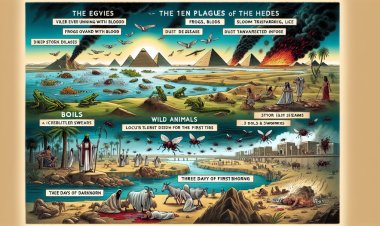The future of the world economy
Dive into our latest blog post to learn about the predicted future of the global economy, including potential trends, challenges, and opportunities.

The future of the world economy
The world economy is a complex system that is influenced by many factors such as technology, demographics, natural resources, political stability, and globalization. In the short term, the COVID-19 pandemic has caused significant disruptions to the global economy, leading to recessions in many countries. However, with the increasing availability of vaccines and the gradual lifting of restrictions, there are indications of a recovery.
In the medium to long term, many economists predict that the world economy will continue to grow, although at a slower pace than in previous decades. This is due to a number of factors, such as demographic changes in many countries, which will result in an aging workforce and slower population growth. In addition, the increasing use of automation and artificial intelligence is likely to lead to significant job displacement in many sectors.
At the same time, the rise of emerging economies such as China, India, and Brazil is likely to continue, as these countries have young and growing populations and are investing heavily in technology and infrastructure. However, there are also challenges associated with this growth, such as environmental concerns and the need to address income inequality.
Overall, the future of the world economy is difficult to predict with certainty, but it is likely to be shaped by a combination of technological advancements, demographic shifts, and geopolitical developments.
How Ai is shaping the world economy
AI is already having a significant impact on the world economy, and its influence is likely to increase in the coming years. Here are a few ways that AI is shaping the world economy:
· Automation: AI is enabling automation in many sectors, from manufacturing to customer service. This has the potential to increase productivity and reduce costs, but it also raises concerns about job displacement and the need for workers to retrain for new roles.
· Personalization: AI algorithms are being used to analyse customer data and provide personalized recommendations and experiences. This is changing the way that businesses interact with their customers and is likely to become even more important as competition increases.
· Predictive analytics: AI is being used to analyse vast amounts of data and make predictions about everything from financial markets to consumer behaviour. This has the potential to improve decision-making and reduce risk in many industries.
· Supply chain optimization: AI algorithms are being used to optimize supply chain operations, from predicting demand to optimizing logistics. This can result in cost savings and improved efficiency.
· Fraud detection: AI algorithms are being used to detect fraud in financial transactions, reducing the risk of financial losses for businesses.
Overall, AI has the potential to transform many aspects of the world economy, but it also raises concerns about job displacement, privacy, and the need for ethical considerations. As AI technology continues to develop, it will be important for businesses and policymakers to carefully consider these issues and develop strategies to address them.
Which country do you think would be the next economic powerhouse?
Based on current trends and projections, there are a few countries that are often mentioned as potential economic powerhouses in the coming years.
One of the most frequently cited countries is China, which has experienced rapid economic growth in recent decades and is projected to continue growing in the coming years. With a large population and a growing middle class, China has become an important market for many businesses around the world.
India is also often mentioned as a potential economic powerhouse, with a large and growing population and a rapidly developing technology sector. However, India also faces significant challenges such as infrastructure development, poverty, and political instability.
Other countries that are sometimes mentioned as potential economic powerhouses include Brazil, Russia, and Indonesia, although each of these countries faces unique challenges and uncertainties.
It is important to note that predicting the future of the world economy is difficult, and many factors can influence the trajectory of individual countries or regions. Factors such as political stability, natural resources, and technological advancements can all play a significant role in determining which countries become economic powerhouses in the coming years.
We hope this article may have helped you understand the forex market and trading. It is important that in this era of uncertainty, we all need a side hustle and income. Trading Forex is the best that it is. Please don't ever think of trading as gambling. Everyone can sing, but only a few can SING. It is a calling. For all those who want to make money in Forex trading without doing the deed of strenuous trading - CLICK HERE.
Happy Trading
To read more interesting articles CLICK HERE
Why do you need to be with TradeFxP? CLICK HERE
To join our Hunter AutoBot Trading Program CLICK HERE
All About TradeFxP's Hunter Ai EA Autobot CLICK HERE



 admin
admin 










